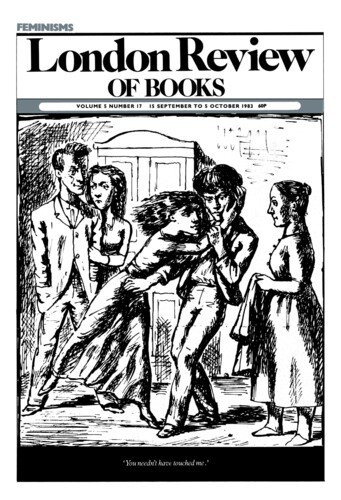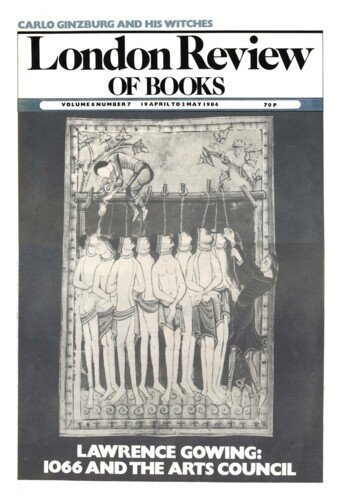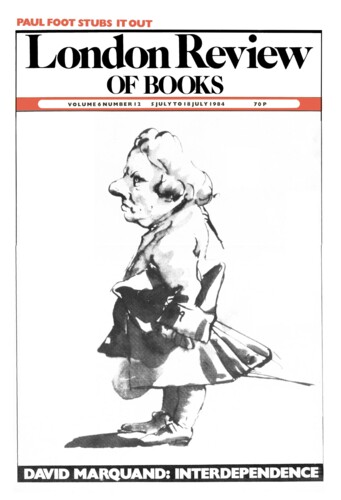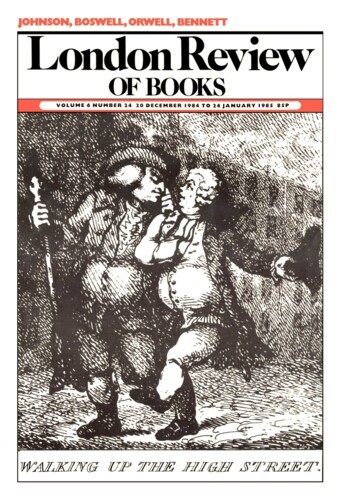Nature’s Chastity
Jose Harris, 15 September 1983
‘Tame’, ‘peaceable’, ‘dogmatic and utterly hopeless’ were the adjectives used by Engels to describe English socialists in his Condition of the Working-Class in England in 1844. By ‘English socialists’ Engels meant, not the wide range of heterogeneous sects whom the term would have embraced at any later period, but one specific group – the followers of Robert Owen. Like Engels himself, Robert Owen was an unusual figure among the founding fathers of socialism in that he was also a successful capitalist entrepreneur. Born in 1771, the son of a humble Welsh saddler, Owen soared to success on the industrial boom of the Napoleonic wars. He became the owner of a highly profitable cotton factory at New Lanark; and it was here that he first became convinced of the need to replace competitive individualism by a communitarian ethic of brotherly love. His vision of socialism combined an exaggerated form of Post-Enlightenment rationalism with a mystic hope of social metamorphosis inherited from William Blake. Over the next fifty years Owen sought to realise his vision in a variety of ways – as a model factory employer, as the founder of socialist communities, as a patron of trade-unionism and workers’ co-operatives, and as the sponsor of a wide range of ‘progressive’ causes from legalisation of divorce to abolition of punishment for crime. His schemes attracted a wide following, particularly among industrial workers and self-taught intellectuals of the lower middle class. The Owenite socialist movement in the 1830s and 1840s constituted what was probably the most extensive radical counter-culture that had existed in England since the time of the Civil War. Yet few historians have seen Owenism as more than a momentary aberration in the march toward industrial capitalism. To historians of collective bargaining the Owenites are mainly significant as early exponents of ‘general’ as opposed to ‘craft’ trade-unionism. By historians of popular religion Owenism has been seen as one among many millenarian sects which sprang up in the 1820s, generated by the trauma of the Industrial Revolution. To Marx and Engels Owenism was merely a moralistic utopian cul-de-sac in the pre-history of scientific socialism. Whigs, Marxists and Fabians have generally concurred in consigning the Owenites to History’s old curiosity shop. Robert Owen, wrote the Webbs, was a political ‘simpleton’ who had ‘inflated’ the working class with a ‘premature conception’ of their revolutionary significance. The verdict of Engels was equally severe: ‘the Owenites were too abstract, too metaphysical and accomplish little.’–





